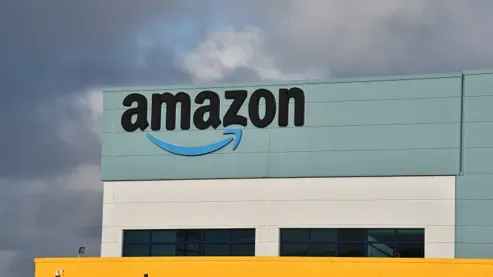Introduction
On June 24, 2024, the Federal Trade Commission (FTC) filed a landmark antitrust lawsuit against Amazon, accusing the e-commerce giant of exploiting its dominant market position to stifle competition and harm consumers. This lawsuit marks one of the most significant regulatory actions against a major tech company in recent years and could reshape the landscape of the tech industry.
Background of the Case
The FTC's lawsuit centers on Amazon's alleged anti-competitive practices, which the commission argues have created a monopolistic environment in the online retail sector. According to the complaint, Amazon has systematically used its market power to suppress competitors and maintain its dominance in several ways, including:
1. Unfair Pricing Practices: The FTC alleges that Amazon has engaged in predatory pricing to undercut competitors, using its vast resources to sell products at a loss until rivals are driven out of the market.
2. Restrictive Seller Agreements: The lawsuit claims that Amazon imposes onerous terms on third-party sellers using its platform. These terms purportedly prevent sellers from offering their products at lower prices on other platforms and compel them to adhere to Amazon's rules, limiting their ability to operate independently.
3. Data Misuse and Preferential Treatment: Amazon is accused of using its access to third-party seller data to identify and replicate successful products, then favoring its own versions of those products in search results and recommendations.
Implications of the Lawsuit
This lawsuit could have profound implications for Amazon and the broader tech industry. Here’s what’s at stake:
1. Potential Breakup of Amazon: If the FTC's case succeeds, Amazon could face structural remedies, including the possible breakup of its various business units. This could mean separating its retail operations from its logistics and cloud computing services (AWS).
2. Increased Scrutiny on Tech Giants: The case against Amazon is part of a broader trend of increasing regulatory scrutiny on big tech companies. A successful lawsuit could embolden regulators to take similar actions against other tech behemoths like Google, Apple, and Meta.
3. Impact on Market Dynamics: The lawsuit could lead to a more competitive and diversified e-commerce landscape. Smaller retailers and startups might find it easier to compete if Amazon is forced to change its business practices, potentially leading to lower prices and more choices for consumers.
Amazon’s Defense and Response
Amazon has vehemently denied the FTC’s allegations, arguing that its practices benefit consumers and small businesses alike. In a statement, Amazon highlighted the following points:
1. Consumer Benefits: Amazon asserts that its pricing strategies and efficiencies have led to lower prices and faster delivery times for consumers, challenging the notion that its practices are harmful.
2. Support for Small Businesses: The company emphasizes that millions of small and medium-sized businesses thrive on its platform, gaining access to a vast customer base that they might not reach otherwise.
3. Innovation and Investment: Amazon points to its significant investments in logistics, technology, and services as evidence of its role in driving innovation and economic growth. The company argues that these investments would be jeopardized by restrictive regulatory actions.
Broader Industry Reactions
The FTC’s move against Amazon has sparked a wide range of reactions from industry experts, policymakers, and competitors:
Proponents of the Lawsuit: Advocates for stricter antitrust enforcement argue that Amazon’s dominance has indeed restricted competition and that regulatory intervention is necessary to restore a level playing field.
Opponents of the Lawsuit: Critics, including some industry analysts and business leaders, warn that overly aggressive regulation could stifle innovation and hurt consumers by leading to higher prices and reduced service quality.
Global Perspective: The case also has international implications, as regulators in Europe and other regions closely watch US actions against big tech. Similar investigations and lawsuits could follow globally, reflecting a growing consensus on the need to rein in the power of tech giants.
What’s Next?
The lawsuit marks the beginning of what could be a prolonged legal battle. As the case unfolds, key developments to watch include:
1. Preliminary Hearings and Court Decisions: Initial court decisions on the FTC's motions and Amazon's defenses will set the stage for how the case progresses.
2. Potential Settlements: Both parties might explore settlement options to avoid a lengthy trial, which could involve Amazon agreeing to change certain practices without admitting wrongdoing.
3. Legislative Actions: The lawsuit could spur legislative efforts to modernize antitrust laws to better address the challenges posed by digital marketplaces and tech platforms.
Conclusion
The FTC’s antitrust lawsuit against Amazon represents a pivotal moment in the ongoing debate over the power and influence of big tech companies. Its outcome could redefine the boundaries of acceptable business practices in the digital age and has the potential to reshape the competitive landscape of the tech and retail industries for years to come.
As this story develops, it will be crucial to monitor both the legal proceedings and the broader impacts on the market and consumer choices. This case underscores the evolving challenges of regulating modern monopolies and balancing innovation with fair competition.
Sources:
- Reuters: FTC sues Amazon for antitrust violations
- The New York Times: Amazon’s Antitrust Troubles
- CNBC: FTC files antitrust lawsuit against Amazon






